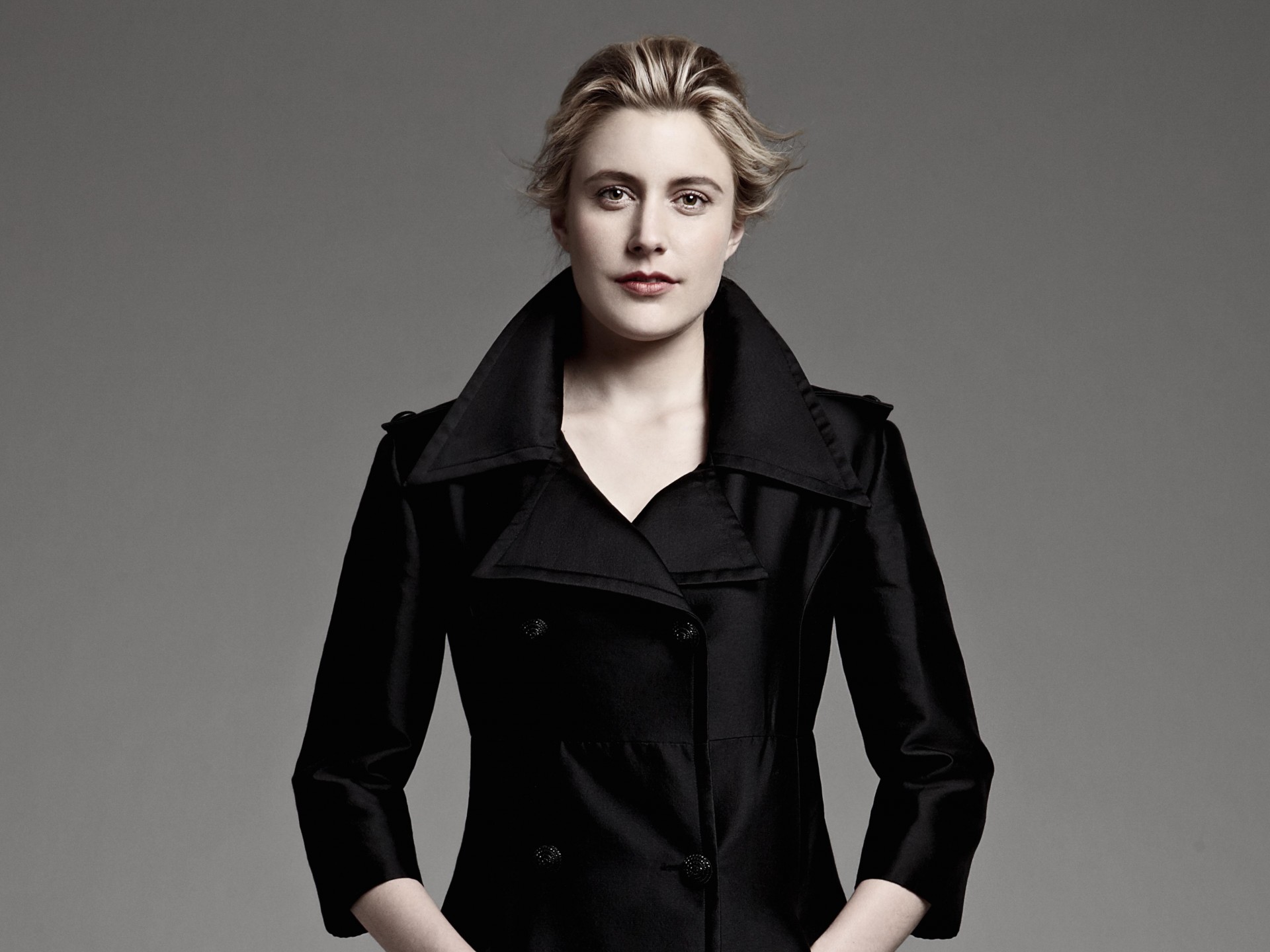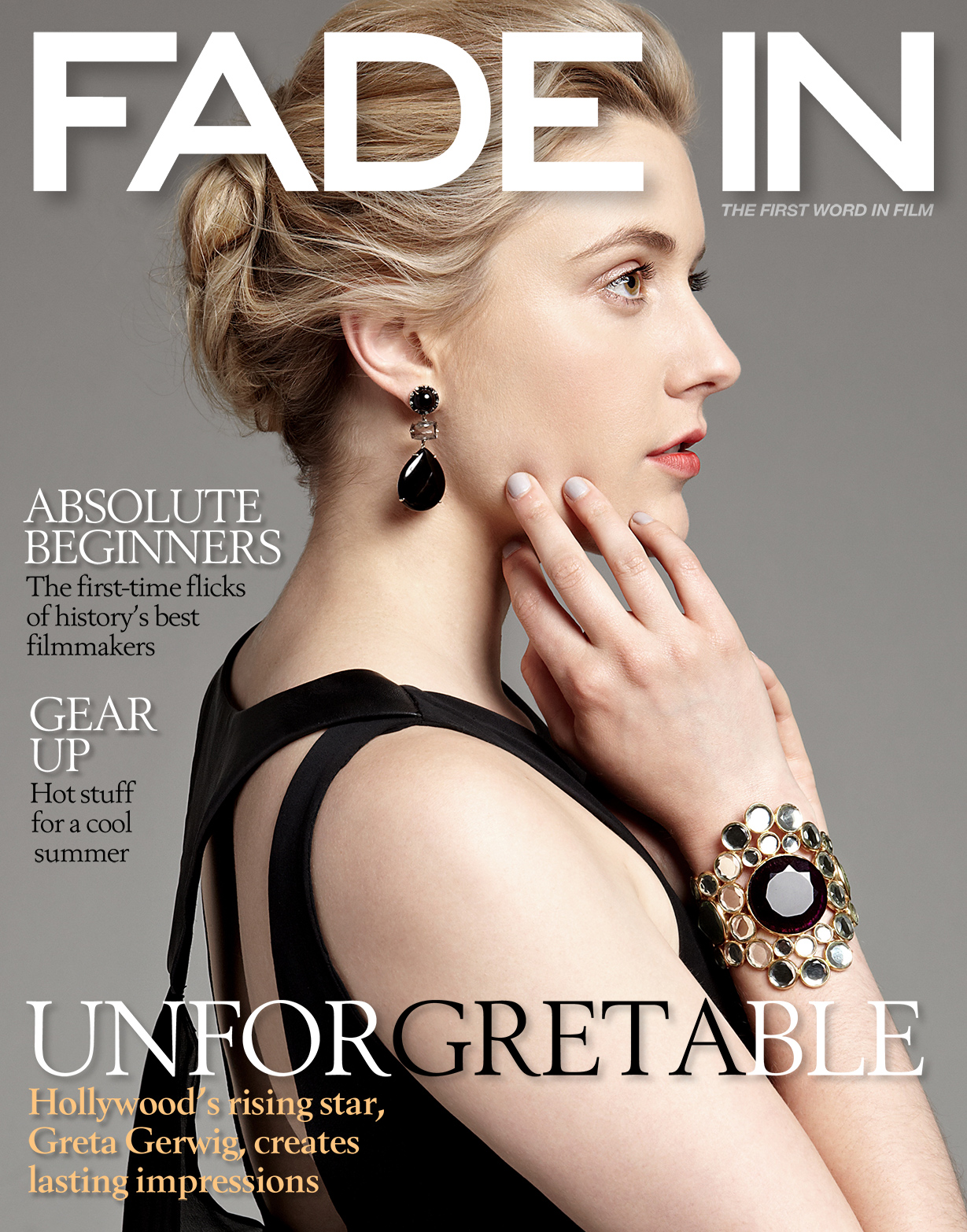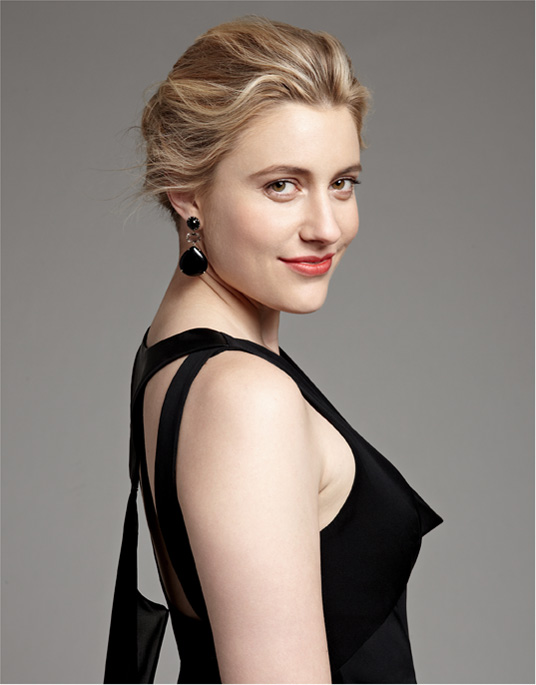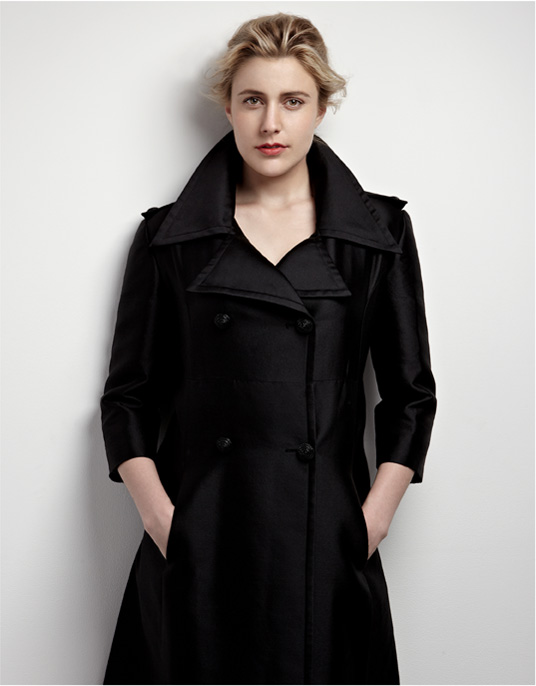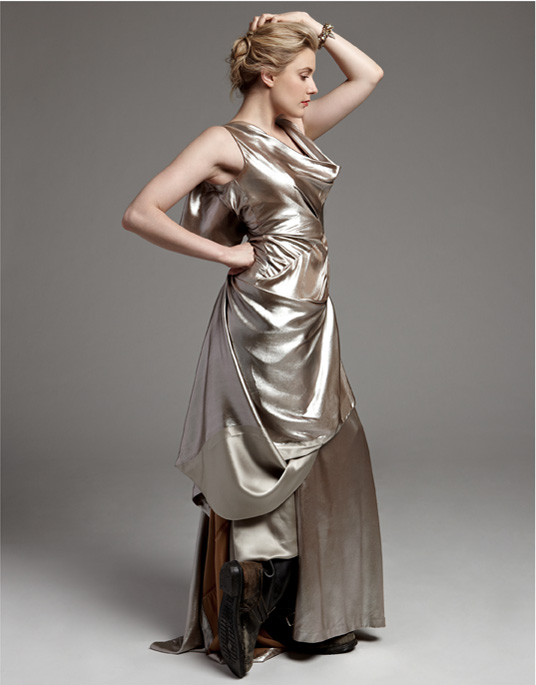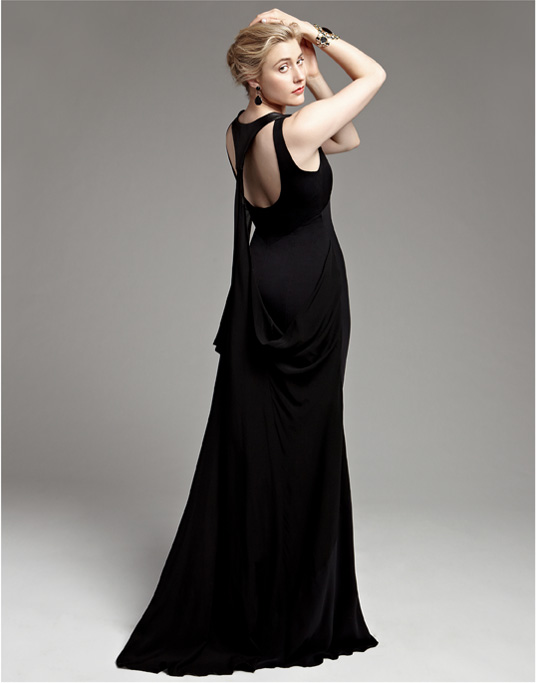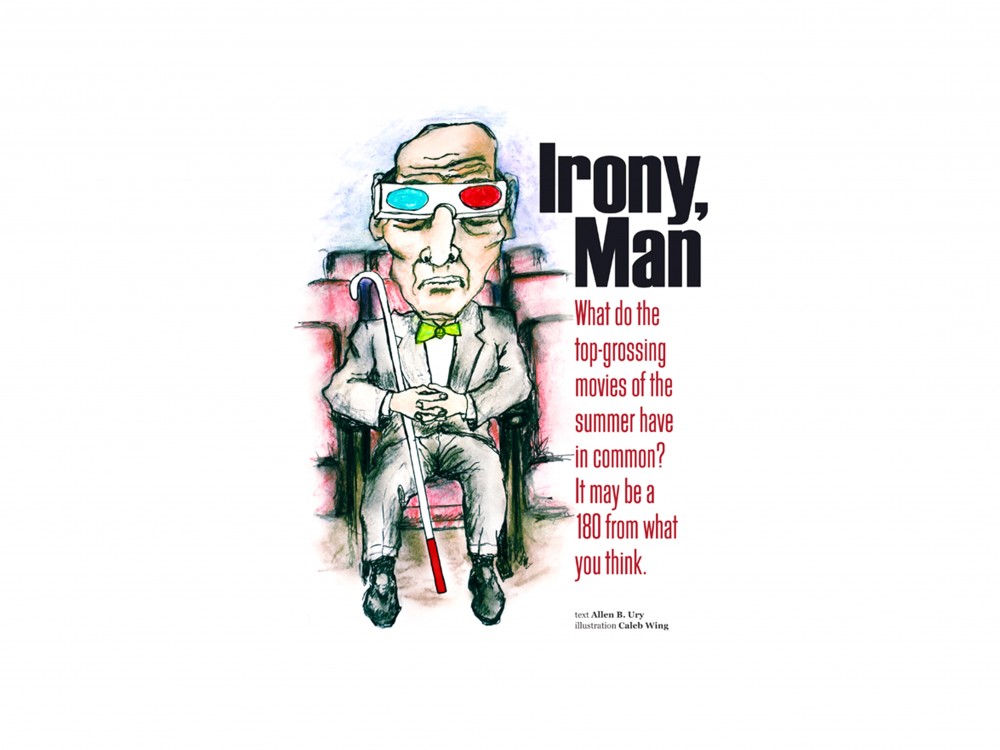Greta Gerwig is flirting with danger. The Sacramento-born actress is at real risk of losing her cult status. In six years, she’s gone from making small-budgeted arthouse fare — like Hannah Takes the Stairs and Baghead — to breakout stardom, co-starring with A-listers Ben Stiller, Russell Brand and Ashton Kutcher, and being directed by legends like Woody Allen.
She’s also giving Samuel L. Jackson a run for his money as the hardest working person in movies, having racked up seventeen films over that period. But all that’s just fine for the genial and extremely literate actress, whose talents reach far beyond that of performing — she can also list writer, director and producer on her ever-expanding resume.
One thing you won’t find her listing, though, is any social media profile. She doesn’t Facebook, Tweet or post – a rarity in a culture where everyone seems to want to be the star of their own Truman Show.
“I understand it, and I’m sympathetic to it,” says Gerwig. “It’s incredibly seductive. In some ways it relieves this idea of whatever fame is, by diffusing the fact that everybody is the star of their own life show. And it’s them reflected in sort of a hall of mirrors.”
Gerwig was initially recognized for her work in the “mumblecore” movement; her starring role in 2006’s Hannah garnered her glowing reviews among the independent community, and eventually led to the role of a quirky and endearing personal assistant who tries to handle prickly Ben Stiller in Noah Baumbach’s Greenberg. The film provoked polarizing reactions, but there was no denying the talent and appeal of Gerwig, who more than held her own beside Stiller. She earned raves and landed an Independent Spirit Award nomination for Best Actress. It wasn’t long before the studios came calling —she was cast opposite Ashton Kutcher in No Strings Attached, and won the Liza Minnelli role in the remake of Arthur.
True to her roots, though, Gerwig returned to the indie scene to work with Whit Stillman, starring in the director’s first film in fourteen years, Damsels in Distress. And in this month alone, audiences will be getting a double dose of the blonde beauty, as she appears in a segment of Woody Allen’s To Rome With Love, and finally gets her chance to carry a bigger-budgeted film as the title character in Fox Searchlight’s Lola Versus. While her career heats up, the self-professed workaholic affably takes it all in stride, remaining remarkably unpretentious and self-deprecating. No wonder she doesn’t fit easily into Hollywood.
Fade In recently spoke to the New York-based actress at a photo shoot to promote Lola, where she weighed in on, among other things, why she decided on the East Coast, how to handle rejection and the true joys of owning an IBM Selectric.
“In New York, people will have not showered for three days but put on a haute couture dress and go outside at two in the afternoon and chain smoke. In L.A., everyone is very healthy and they work out a lot, and they always have perfect hair and makeup, but they’re wearing sweatsuits.”
Lola Versus is the first big-budgeted film that you’ve carried. What kind of pressure was that for you? I felt a ton of pressure. I was very lucky that I had actually made the Whit [Stillman] movie before, because I was in most of that. It’s like a muscle being on every day. It’s like running a marathon. In some ways it’s much more pleasurable to play a supporting role, especially a comedic role, because you come in and you’re just awesome. The truth is, to be on every day, you don’t get to sparkle every day. Some of it is just filling in the gaps and moving it forward. Yeah, I was terrified of doing it because there is that feeling of “There is nowhere to hide here,” and although I didn’t write it or direct it, there’s nowhere to hide as an actor. I was scared. I was so scared the whole time.
Speaking of hiding, you’re going to be recognized much more now. Where do you stand on the whole “fame” thing? Are you comfortable with it? I don’t think I’ve had to confront any of the truly negative aspects of it because I don’t have that kind of mega-invasive noticeability. [For instance], the people [in] Twilight, I can’t imagine that. It sounds horrible. That anybody who gets into making films, or acting, or doing something so public, on some level is okay with being recognized because you wouldn’t do it otherwise. I’m mostly okay with it. As far as I can tell, if you can avoid having it happen to you before sixteen, that helps.
It helps the later it happens because when you’re forming yourself it can be a bit disconcerting [to] have energy focused on you that way. You have more of a sense of who you are, so it’s less impactful, it has less of an ability to build you up or destroy you if you experience it later. It can freeze people at a certain time, too. Like if you’re very beautiful when you’re very young, and you become famous at that particular moment, it becomes hard to grow up after that. It’s hard to become something else, and you’re forever chasing something that’s gone. [Laughs] I’m just talking about Hollywood.
You had the good fortune of working on Lola with one of the great rebels, actress Debra Winger. What kind of advice did she give you about the business? She didn’t give me any advice specifically, but I did feel very connected with her instantly. I was meeting her in the West Village because I heard she had been cast and she wanted to hang out because we were playing mother and daughter, and said, “Let’s go get some lunch.” I didn’t recognize her at first because she’s a little woman, and she was carrying a backpack, and I carry a backpack everywhere. My mother is always telling me, “You have to stop carrying backpacks. At some point you’re going to have to act like you’re a woman.” And I thought, “Debra Winger is carrying a backpack. I can carry a backpack forever.”
Did you see the documentary Searching for Debra Winger? Yeah, I did. I remember watching that and feeling depressed. I saw it when I was a teenager, and it made me really upset for whatever my chosen profession was going to be. I was far away from really being part of it, but it was discouraging.
You said that you were getting a lot of rejection when you first started. How does all that rejection form you as an artist? I was blessed with a lot of pigheadedness. I was always gifted at telling myself that what was happening didn’t feel like rejection. If I had a horrible audition, or something happened where I didn’t feel I wasn’t good enough, or someone said something mean to me, I would instantly turn it into a really funny story that I could talk about, and then it could be grist for the mill. I mostly didn’t experience any of it as rejection because I just couldn’t, because if I felt it like rejection I wouldn’t have kept going. So I always felt it was going to be funny material for something, or this is building me up for something, or that wasn’t the one, but it was paving the way for something. I was always able to turn it into something positive, and not negative. It was probably some constructive form of self-delusion. I also had this thing where I shied away from saying I was an actor to people when they asked me. I felt pathetic when people asked me. When you say you’re an actor, people always say, “Oh, yeah, what’s your day job?” I did have a day job, so I didn’t want to talk about the fact that’s what I wanted to do.
So what would you say you did? I would say I was figuring it out, which to me seemed less eye-rolly.
Always say you’re a writer. Well, as Whit Stillman and I talked about, saying you’re a writer is also a good excuse for no productivity. You can say you’re a writer and no one will ask to see your book, but if you say you’re an actor, people will ask what they can see you in. And it’s like, “Nothing. There’s nothing you can see me in.”
“There was a moment when I realized, ‘It’s the director.’ When I realized that Barton Fink was the same film that was directed by the same people who had written and directed The Big Lebowski. That for me was the moment I realized those were the people you really have to be paying attention to. Don’t follow the actors. Follow the directors.”
But the concept of rejection does toughen you up. Yeah. You toughen yourself up by making fun of it and putting it in another context. It’s a way of kind of producing for yourself a jester who’s able to laugh at a king. That you’re not going to take it, and it’s a king, but so what? That’s the only way I could do it. But if I had internalized some of it, I just would’ve stopped.
Was there ever a point where you were close to giving up? Yes. Lots of points. But I always knew I was going to work in theater or film. I didn’t always know that it was going to be acting or writing, but I knew I wanted to be part of the world, so my giving up still would’ve meant working in development at the Brooklyn Academy of Music. I would’ve done lots of things. I just wanted to be part of it.
What was your B plan? My B plan when I was graduating from college was I wanted to go to graduate school for playwriting. I remember talking to my mom on the phone, and she was like, “How much is NYU for playwriting?”And it was like $50,000, and she said, “Is this an intelligence test? You’re going to pay $50,000 a year to learn how to master a dying art?” I said, “Yes!” but I got rejected. I got through several rounds, but then I got rejected, and it was good that I got rejected, actually. It wasn’t going to be through graduate school, it just wasn’t going to be that way. It was going to be a different path. It became more DIY [do it yourself]: You’re not going to be validated by the university, you’re not going to get a stamp of approval from Yale, so figure it out, kid. David Mamet said in one of his books about acting, True and False, stay out of school and don’t have a fallback plan, because you will fall back on it. I found that Mamet book when I was at home, which I had read at 15, and I had marked it all up and written in the margins, and it’s funny because I don’t remember really thinking about acting a lot, but I was thinking about it all the time because I have all these books. I have this Stella Adler book on Ibsen, Strindberg and Chekhov, and it’s filled with notes. I had no memory of doing that, but I was obsessed. My favorite book of all of them was a book called In the Company of Actors, and it’s all these interviews with these really great British actors. Not necessarily hugely famous actors, just really wonderful jobbing British actors that do theatre, and film and television, and reading those interviews and accounts of what they did, going to drama school, and first jobs and how it all happened. I’ve always like reading writers writing about writing, or actors talking about acting, more than I like theorists because ultimately many theorists never did it.
You said the reason you started writing is that no one would hire you as an actress. That’s part of it, yeah. It’s kind of a cute way of saying it, but it’s not entirely true. But I do think that had I just been able to work as an actress, and not write, I’m lazy enough that I would not have written. But now I feel compelled to write. I did feel compelled to write in college. It’s a different kind of work; it’s hard.
Acting [takes] skill, but acting feels like a gift when it goes well. It doesn’t feel like heavy lifting. What I love about writing, but what is hard about writing, is that it does feel like heavy lifting sometimes. It’s less collaborative. One of the things about acting is that you get hired to do it, and then you’re there, and it eliminates you deciding that you’re not good enough, or that you can’t do it, or you’re not sure, because there you are on the day, on the set, and there’s all these people there, and someone is acting with you. It’s an artificial situation, so you can get over your own shit and just act. In writing, it’s not the same thing, because it happens alone, and the real work happens when it doesn’t look like you’re doing anything. I’ve always kind of been the person who thrives on collaboration and external validation, and writing can be quite a lonely thing, but that’s also why it’s important that I do it, and that I cultivate it, because it goes against some of my tendencies.
Good or bad tendencies? It goes against some of my bad tendencies.
Such as? Well, for example, I was a ballet dancer for a long time. I loved ballet, but again, ballet happened in front of someone who’s telling you whether or not you’re doing it right, and there’s an idea that if you worked hard enough at it, you could be perfect.
Did you have one of those mean Madames? No, I didn’t have a really mean one, but I had one that was psychologically abusive. She would give us different names. We had ballet names. It was a like a cult. That’s what they do in cults — they rename you. I later realized that was a pretty insane thing to do to a bunch of young girls, to say, “Your parents may call you Greta at home, but here I’m calling you Scarlett.” It was really intense. Ballet teachers often cultivate a kind of psychological subjugation that you feel like you always need someone to tell you you’re doing a good job. In that way, you learn how to work, but you also don’t know how to trust yourself, and that writing a lot has been an exercise in trusting myself.
That’s creepy. It’s super creepy.
You attended an all-girl high school here in California and then moved to New York to attend Barnard, an all-female college. Why? I loved both. I don’t think it’s for everyone, but for me, an all-female education is incredibly empowering and life-changing. Sometimes in co-ed schools things tend to divide along gender lines, and the roles people play divide along gender lines. In the co-ed school, it’s more typical that the boy would be the class clown or be the disobedient one, and the girl would be the goody two-shoes.
Which were you? Well, the thing is about an all-female school is, the women play all the roles! For me it helped because I felt like there wasn’t anything specific I should be doing as a woman. On some fundamental level, a lot of gender norms that are absorbed through the water aren’t actively told to you; they’re so big, you don’t even notice them. And an all-girl school helps to minimize that.
Most people have the misconception that you’re a “New York actress.” I know. I’m not. Although in some ways, I guess, the most genuine New Yorkers are immigrants to New York. It’s a place that people go to realize whatever their dreams are, and I definitely fall into that.
“I auditioned for Woody [Allen]. He called me back, and I actually acted a scene for him, and he gave me direction, and I acted it again, and I ended up getting the part. I had always heard that he doesn’t really want to see you act, he just wants to look at you.”
You never entertained the thought of coming to Los Angeles first? No. I didn’t have a mythology associated with Los Angeles the way that I did with New York. Genuinely what it was, was that I didn’t have a cinematic palette for it. I had a cinematic palette for New York, like the Woody Allen movies; I felt like there was this mythology. I love that E.B. White essay “Here Is New York,” where he says, “No one should come to New York to live unless he is willing to be lucky.” And Joan Didion, who also grew up in Sacramento, and is sort of my patron saint, she went to New York and just had this great line in one of her essays that said something about stepping off the plane in New York wearing a dress that had seemed very smart in Sacramento. I just related to that. With Los Angeles, I didn’t have quite the same feeling of, like, “God, I have to be part of that!” And in New York I really had that feeling. Now, retroactively, I am more connected to what the Los Angeles mythology is, and I got that feeling when I first drove onto the Paramount lot in Hollywood. It was pretty exciting.
What would it take for you to pick up stakes and move out here? I don’t think I ever would. Since I was a little girl I’ve wanted to live in New York City, and I can’t believe that I get to do it, so I see no reason to dismantle that reality.
You’ve said that people wear cities on their faces and bodies. Oh, yeah, I do believe that.
Okay, so what does an artist look like in New York compared to Los Angeles? I’m going to have to steal from one of my friends. In New York, people will not have showered for three days but put on a haute couture dress and go outside at two in the afternoon and chain smoke. In L.A., everyone is very healthy, and they work out a lot, and they always have perfect hair and makeup, but they’re wearing sweatsuits. That’s the difference, as far as I could tell, at least externally, but there’s a lot of other differences. A musician friend of mine told me that there’s a lot of electronic musicians in New York, and one of the reasons is you can make the music on your computer with headphones and you’re not disturbing your neighbors. Because it’s such a dense population, there are much fewer bands with guitars and a drum set than there are in L.A. Here there’s more space, so you’re not disturbing as many people if you practice, so there’s actually more indie groups that are full-on rock bands here. It’s just little things like that. It influences everything. One thing that always creeps me out about Los Angeles is that dressing is sort of pretend here. The weather is pretty much the same all year, so it’s always strange when people buy coats here. I don’t know why they buy coats. They don’t need to wear them. But in New York, the weather dictates entirely how you dress. It’s cold, it’s brutally hot, it’s raining, it’s snowing. Everything is very utilitarian, but in L.A. it’s all decorative. It’s funny, it’s one of those things I can’t quite wrap my head around because I’m so used to utilitarian dressing.
You mentioned Woody Allen. How did To Rome With Love come about? I got the call that he wanted me to audition, so I was just excited that I would meet him for probably thirty seconds, which is exactly what happened. Actually, I was with another actress, and we both saw each other in the waiting room, and were so nervous, and we went in and came back out, and then we went and got martinis because we had so many nerves. We walked to one of those bars on the Upper East Side at two o’clock in the afternoon, so two single girls getting martinis at two o’clock in the afternoon in an Upper East Side bar sure got some looks. But then the opposite happened to me that everybody says will happen to you, which is that I auditioned for Woody. He called me back in, and I actually acted a scene for him, and then he gave me direction, and I acted it again, and I ended up getting the part. I had always heard that he doesn’t really want to see you act, he just wants to look at you.
And you only got the pages of the scenes you were in, which he’s famous for. Were you more comfortable with that, or is it awkward? I don’t mind that. Sometimes actors can overthink things if they have all these pieces because they can start intellectualizing their place in the movie instead of just playing the scene at hand. I like the results of giving actors just the scenes they’re in because it makes them economize what they’re doing.
One thing you have in common with Woody is your love of using a typewriter to write. Explain your relationship with the IBM Selectric. It makes it sound very quaint, but I don’t only write on that. It’s the best typewriter. I love the way it sounds when you turn it on. It’s got this big hum. It just feels like you’re powering up the Death Star. It’s really intimidating, and in the world of tiny, silent electronics, which we’ve all moved into, where everything is the size of a quarter, it’s so heavy and big and giant and low and it has this growl. It just kinda revs me up.
Is it easier to create on a Selectric than a computer? No, it sort of goes both ways. When I get jammed up, I like there to be a lot of different ways to work on stuff. If you write on, say, Final Draft, because the formatting is so convenient, it’s a wonderful thing, but you can’t write anything outside of the format. If you have a pen and paper, or you’re talking out loud to yourself, or you have a typewriter, it gives your ideas all these different ways to come through because some days it just doesn’t work on a computer. It’s a lot easier to edit on a computer, but I also really love printing it out and just writing on the pages and editing that way. You sort of start losing your mind if you look at a screen for too long.
You’re always being referred to as the “queen of indies” or “the mumblecore queen” in the press. Are you happy with those monikers? I’m fine with those titles, but I don’t have any relationship with [them], per se. I feel like they’re a hooky thing to say in an article. Although this sounds arrogant, I know I’m lots of things, and I know that I’m even more than I’ve gotten to do, and that’s scary and comforting at the same time. It sounds self-important, but I’m excited by it because it makes me feel like I have somewhere to go. Like I’m not at the end of my rope and this is the end of the story. There’s some combination of panic and crazy self-confidence that are always at war, but they go along together. That there’s some internal sense of “I’ve got more to say,” and then there’s “Oh my God, I’m never going to have anything else to say again.” But that pushes something interesting out. One of the reasons I love acting and writing is that I feel at the end of every movie like I’ve left it all out there. I feel the only way to regenerate is to give it all up. You can’t pull any punches. You have to go all the way, and that’s how you get it back. But if you try to keep something for yourself, for me, anyway, that ends up being just a loser’s game, and then I become miserly with my own impulses or my own creativity, and I can’t do that.
One of your very first films, House of the Devil, showcased you acting on a different level than your cast mates, in terms of your delivery, phrasing and beats. That’s an incredible compliment, but sometimes it’s a good thing, and sometimes it makes you look like you’re in a different movie. [Laughs] There are certain people on the screen that are just so interesting. I feel that way about Gene Hackman. I was watching Mississippi Burning a couple of months ago, and I kept rewinding this scene with him and Willem Dafoe, and Dafoe is great, but man, is Gene Hackman on like another plane. When he was acting, you couldn’t see it, I believed everything he was doing. There was something about it, there’s an electricity when he’s onscreen because it feels like anything can happen, because you’re watching somebody live. And he’s not indicating anything, it doesn’t feel intellectualized, it doesn’t feel broken down, it feels like that wonderfully crackly muddiness that people live in. It was awesome.
How do you achieve that naturalistic level of acting? When I was in junior high and high school, I did a lot of musicals, and I thought for a long time acting was just imitating. I would just try and mimic what the person in the movie had done on stage, and in a funny way, that actually kind of gets you to try things, and gets you out of your head and into other people’s skin. But I remember in college I was feeling like I was hitting my head against a wall with acting. I knew I loved it, but I knew it wasn’t working. I could just feel that it wasn’t quite there, but I was looking for it. And I remember the moment; it was my senior year of college, where you audition for the departmental plays and classes each semester. It’s really scary because you go up in front of all the teachers and all the students and you perform for a minute. And it’s really, really, scary. I was looking at all these monologues, and I had been writing plays, and I just thought to myself, “Why are you looking for something to act? Look for writing you love. What’s a piece of writing that you really understand?” And I picked up Kenneth Lonergan’s Lobby Hero, and there’s a speech that one of the male characters gives that I just knew inside of myself because I felt this connection, and I knew how it should be done. Maybe it was playing a man’s part, maybe it was the language, but I remember standing on stage and doing this monologue, and something internally just clicked inside of me, and it was like, “There it is. That’s the thing you’ve been looking for.” I don’t always get it, but there was this slight shift, and it was really what excited me in the language.
What about film? Growing up, what was that moment when the cosmic tumblers clicked into place and you said, “Yes!”? I feel like I had that experience watching both Hitchcock and Woody Allen films, I had that thing where I was like, “I know what this is.” Like a lot of people, I watched movies for actors growing up; early on, I wasn’t really aware of writers and directors. I loved, loved Gwyneth Paltrow. You know when you’re a young girl and you idolize different people? There was a moment, though, it was with a Coen Brothers movie, when I realized “It’s the director.” When I realized that Barton Fink was the same film that was directed by the same people who had written and directed The Big Lebowski. That, for me, was the moment I realized those were the people you really have to be paying attention to. Don’t follow the actors, follow the directors. I still like actors — great actors like DeNiro with Scorsese, those films are incredible. I know that everybody knows they’re incredible, but they really are. I feel that way about so many things, but sometimes when things are accepted as being classics, no one really looks at them anymore because it’s a given. Everyone knows. “Okay, Taxi Driver, it’s amazing.” But Taxi Driver is so weird, so weird, and he’s so amazing in it, I can’t imagine the equivalent today. It’s those collaborations where it’s that magic thing when great actors are working with great directors and writers, in a moment where something just happens. It’s exciting. That’s why I go to the movies — to see that. I want to see more of it. It’s like Jessica Chastain — she’s an amazing actress and I want to see some filmmaker be like, “You’re my girl!,” and now he’s going to make her a star, although she’s already one. I don’t know, it seems like there’s fewer relationships like the DeNiro-Scorsese thing.
Tim Burton-Johnny Depp? That’s good. But it’s not as dirty. [Laughs] I like it when it feels like it’s not sanctioned by the mainstream. It feels really special when it’s happening just beyond the parameters of people who are watching.
What does your directors’ wish list look like? It’s sooooooo long. And in some ways my wish list of directors, I don’t even know if they’re people that I really stand a chance of actually making a film with, or even envision myself in one of their films, they just make films that I love. I love the Belgian filmmakers, the Dardenne Brothers, I love Lars von Trier, Hong Sang-soo, (laughs) who doesn’t make English-language films. I would love Mike Nichols to make another film, he’s one of my favorites. I love Tarantino, he’s amazing. Mike Leigh is my favorite above everyone. He’s my favorite filmmaker of all time. I’ve seen all of his films, but when I saw Another Year, I just sat in the movie theater and I cried because I loved it so much, and the acting was so brilliant. When I was in London to promote Arthur, I saw one of his plays that he wrote in the ’80s, and he revived it, and directed it, and it was the best piece of theater I’ve ever seen in my life. It was the most intricate, human, non-showy piece of brilliantly crafted acting. It was like everything seemed like a mistake, but wasn’t a mistake.
In your earlier films, you seemed to utilize a lot of the same approach that Leigh uses, without a basic script. He develops his scripts through improv, so he uses his actors to develop the script. We wouldn’t use it to develop the script, we’d just use it to create the raw material for what the movie became. I’ve really moved away from that now. I’m actually less interested in seeing raw improvisation because I don’t think it’s as interesting as watching what things can be sculpted into. I like writers, so I like it when a writer takes that stuff and then makes it into something that feels crafted.
But Lola is actually in the spirit of your earlier films. It is. It had more of a community sense of laissez-faire when we were making the film, it didn’t feel as tightly structured. It certainly didn’t feel like a top-down situation, it was very collaborative.
You’ve worn so many hats — actor, writer, director, producer, composer, singer. What’s not on your resume that you have to do? I would really like to make a film that feels like, “This is me.” I’ve not done a film yet that feels like this is me, this is what I love, exactly the kind of film I’d like to make. I’ve had little pieces of my artistic sensibility or my aesthetic inserted into other people’s work, and I’ve collaborated with people, but I’d like to do something that feels like an artistic expression. Maybe that’s narcissistic or selfish, but I want something that feels pure and whole and risky, and like I’m all out there, behind it and in front of it, and I don’t have anything to hide.
stylist Kendrick Osorio hair Aviva Perea make-up Mai Quynh
cover: Black Crepe Grecian T Drape Dresst: Nicole Miller
Brumani Earrings & Black Quartz Cuff: Brumani
Slate Beaded Gown: Nicole Miller
Double-breasted, Silk Maxi Coat: Kevan Hall
Black Crepe Grecian T Drape Dress: Nicole Miller
Metallic Grecian Drape Dress: Nicole Miller Boots: Frye’s
